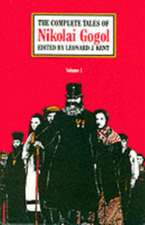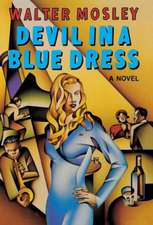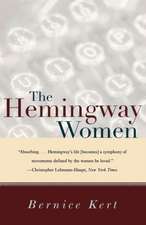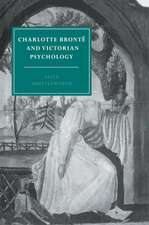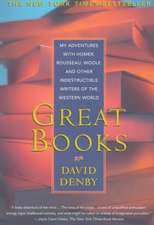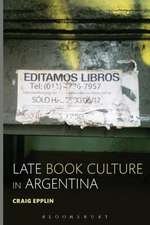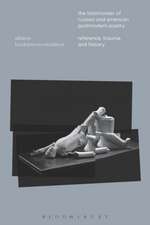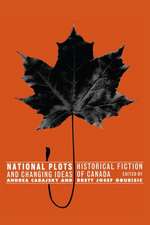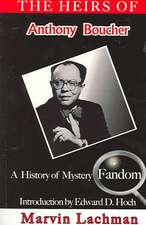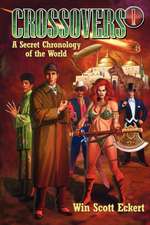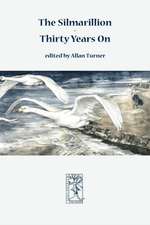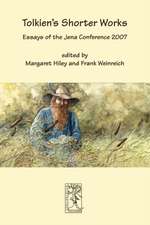Jonathan Franzen: The Comedy of Rage
Autor Professor Philip Weinsteinen Limba Engleză Paperback – 5 oct 2016
| Toate formatele și edițiile | Preț | Express |
|---|---|---|
| Paperback (1) | 83.36 lei 6-8 săpt. | |
| Bloomsbury Publishing – 5 oct 2016 | 83.36 lei 6-8 săpt. | |
| Hardback (1) | 202.97 lei 3-5 săpt. | |
| Bloomsbury Publishing – 21 oct 2015 | 202.97 lei 3-5 săpt. |
Preț: 83.36 lei
Preț vechi: 137.74 lei
-39% Nou
Puncte Express: 125
Preț estimativ în valută:
15.95€ • 16.65$ • 13.20£
15.95€ • 16.65$ • 13.20£
Carte tipărită la comandă
Livrare economică 04-18 aprilie
Preluare comenzi: 021 569.72.76
Specificații
ISBN-13: 9781501325557
ISBN-10: 1501325558
Pagini: 248
Dimensiuni: 140 x 216 x 25 mm
Greutate: 0.2 kg
Editura: Bloomsbury Publishing
Colecția Bloomsbury Academic
Locul publicării:New York, United States
ISBN-10: 1501325558
Pagini: 248
Dimensiuni: 140 x 216 x 25 mm
Greutate: 0.2 kg
Editura: Bloomsbury Publishing
Colecția Bloomsbury Academic
Locul publicării:New York, United States
Caracteristici
Philip Weinstein has known Jonathan Franzen for over two decades having taught at Swarthmore College during Franzen's undergraduate years there, as well as during his return to teach creative writing in the early 1990s
Notă biografică
Philip Weinstein is the Alexander Griswold Cummins Professor of English at Swarthmore College, USA. The recipient of several NEH Fellowships and an ACLS Fellowship, and past President of the Faulkner Society, Weinstein has written books that range from James to Faulkner and Morrison (in American literature), and from Dickens through Joyce (in British literature). These include Faulkner's Subject: A Cosmos No One Owns (1992), What Else But Love? The Ordeal of Race in Faulkner and Morrison (1996), Unknowing: The Work of Modernist Fiction (2005). Weinstein's Becoming Faulkner (2010) was the recipient of the Hugh Holman Award for the best book written on Southern Literature. He is also the editor of The Cambridge Companion to William Faulkner (1995).
Cuprins
AcknowledgmentsList of AbbreviationsPrefaceIntroductoryChapter One - Becoming Jonathan FranzenChapter Two - A Bugged World: The Twenty-Seventh City Chapter Three - Something Wrong in the Underbrush: Strong MotionChapter Four - Status and Contract, Collapse and ArrivalChapter Five - All in the Family: The CorrectionsChapter Six - Taking and Mistaking: FreedomChapter Seven - The New YorkerAfterword - Hungering for Clean: PurityIndex
Recenzii
...synthesizes from Franzen's conversations and correspondence with Weinstein, extant interviews, and Franzen's own writings a convincing psychological portrait of an author who recovered from depressive years of being angry with himself by projecting that anger and rage outward and then finding love of himself and others.
From The Twenty-Seventh City (1988) to Freedom (2010), and with some reference to Franzen's newest novel, Purity (2015), Weinstein traces the author's oeuvre to uncover its creative impulse. He asserts that Franzen's artistic drive rests on his ambivalence, his simultaneous desire to both critique his world and be accepted and loved by it, a conflict that Weinstein defines as the "comedy of rage." Chapter-length close readings and biographical details frame, contextualize, and expand upon Franzen's major works. Drawing on the novelist's essays and previously published interviews as well as personal interviews and emails (Weinstein met Franzen when both taught at Swarthmore College), Weinstein assembles a careful and convincing argument. VERDICT Fluent and immersive, Weinstein's criticism will interest not only scholars but also writers. Strongly recommended for academic libraries. (Starred review)
Jonathan Franzen: The Comedy of Rage is a virtuoso performance, a triumph of rigorous thought, canny, profound insight, verbal prowess, creative imagination, and magisterial judiciousness. Weinstein's wise, sensitive, and witty account of Franzen's growth and development makes a compelling argument for Franzen's place as America's preeminent writer. Like Franzen's fiction, Weinstein contemplates issues that fascinate and vex us all: the nature of values, personal growth, pain and suffering, intimate relationships, failure and frustration, hope and happiness. Jonathan Franzen: The Comedy of Rage is literary and cultural critique of the highest order.
Weinstein's rigorously critical approach to The Corrections and Freedom reminds us that while Franzen is a legitimate contender for the mantle of literary greatness, the jury is still out. Instead of simply declaring victory for his man, Weinstein invites the reader to engage in a serious conversation about the art of modern American fiction. What more could one ask?
Philip Weinstein's new book on Jonathan Franzen is a probing and incisive study of an American novelist who has become one of the most recognized figures of the millennial generation. In this convincing auteur study, biographical detail and intensive close readings of the work are seamlessly combined to produce illuminating discussions of Franzen's career and celebrity status, his difficulties with writer's block, the encyclopedic range of his novels, and his relationship with David Foster Wallace. Weinstein successfully establishes the centrality of Franzen's work at mid-career and at a moment when his image and capacities as an important writer are beginning to emerge more clearly from the chemical bath of contemporary canon-formation.
In Jonathan Franzen: The Comedy of Rage, Philip Weinstein traces an increasingly well-known story about his subject.Yet Weinstein is troubled: . Weinstein finds it difficult to square what he sees as [Franzen's] toing and froing between "mainstream" and "elite" concerns.. He asks: 'How do the suspicious intellectual loner and the mainstream writer idolized by millions (and despised by sizable numbers) come together as one person?'
Excerpted
From The Twenty-Seventh City (1988) to Freedom (2010), and with some reference to Franzen's newest novel, Purity (2015), Weinstein traces the author's oeuvre to uncover its creative impulse. He asserts that Franzen's artistic drive rests on his ambivalence, his simultaneous desire to both critique his world and be accepted and loved by it, a conflict that Weinstein defines as the "comedy of rage." Chapter-length close readings and biographical details frame, contextualize, and expand upon Franzen's major works. Drawing on the novelist's essays and previously published interviews as well as personal interviews and emails (Weinstein met Franzen when both taught at Swarthmore College), Weinstein assembles a careful and convincing argument. VERDICT Fluent and immersive, Weinstein's criticism will interest not only scholars but also writers. Strongly recommended for academic libraries. (Starred review)
Jonathan Franzen: The Comedy of Rage is a virtuoso performance, a triumph of rigorous thought, canny, profound insight, verbal prowess, creative imagination, and magisterial judiciousness. Weinstein's wise, sensitive, and witty account of Franzen's growth and development makes a compelling argument for Franzen's place as America's preeminent writer. Like Franzen's fiction, Weinstein contemplates issues that fascinate and vex us all: the nature of values, personal growth, pain and suffering, intimate relationships, failure and frustration, hope and happiness. Jonathan Franzen: The Comedy of Rage is literary and cultural critique of the highest order.
Weinstein's rigorously critical approach to The Corrections and Freedom reminds us that while Franzen is a legitimate contender for the mantle of literary greatness, the jury is still out. Instead of simply declaring victory for his man, Weinstein invites the reader to engage in a serious conversation about the art of modern American fiction. What more could one ask?
Philip Weinstein's new book on Jonathan Franzen is a probing and incisive study of an American novelist who has become one of the most recognized figures of the millennial generation. In this convincing auteur study, biographical detail and intensive close readings of the work are seamlessly combined to produce illuminating discussions of Franzen's career and celebrity status, his difficulties with writer's block, the encyclopedic range of his novels, and his relationship with David Foster Wallace. Weinstein successfully establishes the centrality of Franzen's work at mid-career and at a moment when his image and capacities as an important writer are beginning to emerge more clearly from the chemical bath of contemporary canon-formation.
In Jonathan Franzen: The Comedy of Rage, Philip Weinstein traces an increasingly well-known story about his subject.Yet Weinstein is troubled: . Weinstein finds it difficult to square what he sees as [Franzen's] toing and froing between "mainstream" and "elite" concerns.. He asks: 'How do the suspicious intellectual loner and the mainstream writer idolized by millions (and despised by sizable numbers) come together as one person?'
Excerpted


